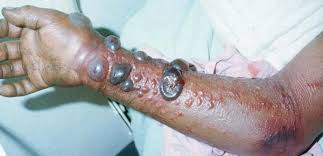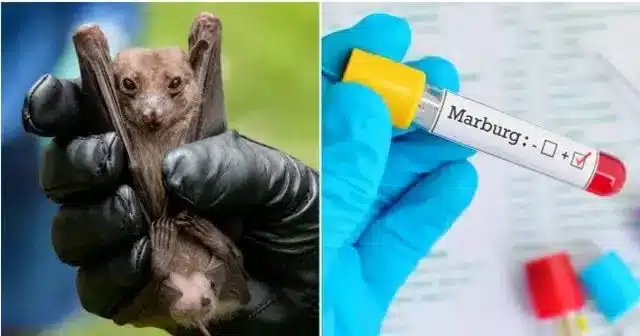Nigeria Strengthens Screening Efforts to Prevent Marburg Virus Spread, Targets Incoming Passengers

In response to the recent outbreak of Marburg Virus Disease (MVD) in Rwanda, the Nigerian government has intensified preventive measures to guard against the virus entering the country. Rwanda declared its first MVD outbreak on September 27, 2024.
Dr. Jide Idris, the Director General of the Nigeria Centre for Disease Control and Prevention (NCDC), announced during a press briefing on Thursday that health declaration forms have been activated for passengers arriving from regions affected by the outbreak.

As of October 15, 2024, Rwanda has confirmed 62 cases and 15 deaths due to MVD. The World Health Organization (WHO) has classified the disease as a Grade 3 emergency, with past outbreaks recording case fatality rates ranging from 24% to 88%.
MVD, previously referred to as Marburg hemorrhagic fever, is a highly infectious and often fatal disease transmitted through direct contact with infected bodily fluids or contaminated surfaces. Fruit bats are believed to be the natural carriers of the virus, and consumption of the animals poses a significant transmission risk.
Dr. Idris cautioned, “The Marburg virus is highly infectious and similar to Ebola. We urge Nigerians to be cautious, avoid contact with wild animals, and seek medical help immediately if symptoms appear.”
The NCDC has implemented several measures to combat the potential spread of the virus. These include activating health declaration forms for passengers entering Nigeria from affected areas, designating isolation centers for the immediate quarantine of suspected cases, stockpiling medical supplies in preparation for potential outbreaks, and enhancing surveillance of travel between Nigeria and Rwanda.
Neighboring countries such as the Democratic Republic of Congo, Uganda, and Tanzania have previously reported MVD outbreaks. The WHO is actively assisting Rwanda in its response through incident management, epidemiology, and infection prevention efforts.
Dr. Idris further emphasized, “Although there is currently no specific treatment or vaccine for MVD, preparedness is crucial. We are collaborating with various stakeholders to ensure an effective response.”
Travelers to affected regions are urged to remain vigilant, follow safety guidelines, and report any symptoms promptly. The NCDC’s proactive steps are aimed at preventing local transmission and safeguarding public health in Nigeria.






